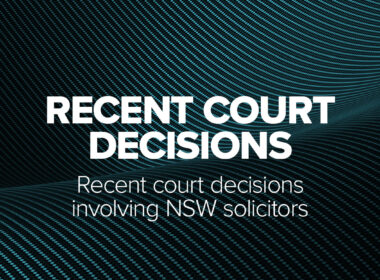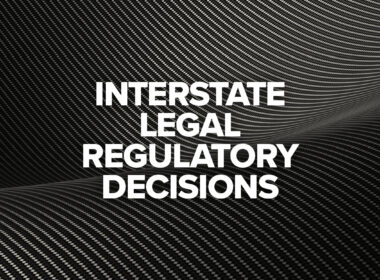There have been some recent developments on the practical application of Legal Professional Privilege (LPP). This is the first in a series of articles on the recent updates of Legal Professional Privilege and how they may impact legal practice.
The overuse of claims for privilege and how they may be treated by the opponent and the Court have recently been addressed in several reports arising from public inquiries. The inquiry into the activities of The Star Casino have provided valuable lessons to note. Also, the report has coincided with the release of draft protocols from government departments, most importantly a recent draft protocol for consultation on LPP from the Australian Tax Office (ATO). Further developments are expected in regard to the ATO protocol and how it may impact legal practice.
Definitions and principles of privilege
The recent report into the activities of Star Casino (the report), highlighted a series of “…erroneous claims of legal professional privilege…” in relation to reports obtained from an accounting firm. A practice of a ‘blanket’ claim of privilege by in-house counsel was made that was inconsistent with the correct use of the doctrine of privilege. The report identified this problem and made recommendations to address this deficiency.
As stated in the report “…Legal professional privilege attaches to communications made and documents prepared for the dominant purpose of either a lawyer providing a client with legal advice, or the client being provided with legal services relating to an actual or anticipated proceeding….”
The application of this definition recognizes that “……Legal professional privilege is a rule of substantive law which may allow a person to resist producing documents or other information.……and arises from the professional relationship that exists between lawyers and clients. ……It should only be invoked when there is a reasonable basis to do so, and not as a matter of course or as a means of withholding adverse information from regulators and others without basis….”
The report goes further to state “…Privileged documents kept by a lawyer will include copies of documents provided to the lawyer which might not themselves be privileged, but which were attached to a communication for legal advice or proceedings…….. and ……That does not mean, however, that documents become privileged merely because they are sent to a lawyer. The copy of them sent to the lawyer is privileged but not the original. If the original (unprivileged) copy is unavailable, then the privileged copy loses the privilege.
Onus of proof on claiming Legal Professional Privilege
A practical scenario may include where ‘a regulatory authority (Applicant) may want information’ and the other side (Respondent) says “No … we claim privilege.”
This may raise some threshold issues that need to be addressed where the onus of proof on a claim for Legal Professional Privilege is questioned.
The applicant may claim that the onus is on the respondent to make out its claim. It is not sufficient for a party merely to assert a claim for legal professional privilege, with reference to: Grant v Downs [1976] HCA 63; (1976) 135 CLR 674 at 689 (Stephen, Mason and Murphy JJ), Esso Australia Resources v Commissioner of Taxation [1999] HCA 67at [52] (Gleeson CJ, Gaudron and Gummow JJ), although inferences may be drawn from the available material as in DSE (Holdings) Pty Ltd v InterTAN Inc [2003] FCA 1191; (2003) 135 FCR 151 (“DSE (Holdings)”) at [29] (Allsop J).
In summary, merely stating that the documents were subject to Legal Professional Privilege is not sufficient. Evidence is required to justify the claim rather than a mere assertion.
The test for privilege
First, the ‘dominant purpose’ which the High Court declared in Esso to be the common law test recognizes that “…where a communication is made or a document prepared for the dominant purpose of giving or receiving legal advice or assistance, then it does not matter that there were also other, subsidiary purposes….”
Secondly, the circumstance that the documents are relevant to, or were used to support, the findings of a material fact in the reasons of the decision-maker says nothing about the purpose or purposes for which they were prepared.
In some cases, there is no direct evidence that the communications were confidential but that is the inference which is to be drawn from the evidence that they were made between solicitor and client.
Subject to certain exceptions (such as overriding public interests, compulsion of law and cases of fraud), a legal advisor has an obligation “to keep inviolate his client’s confidences….” Baker v Campbell (1983) 153 CLR 52 at 65 (Gibbs CJ).
As Prof Dal Pont quotes “…the law has from the earliest times viewed the lawyer-client relationship as a relationship of confidence…”
Outcomes and lessons to learn
However, the findings from the report highlighted the risk of an unjustified claim of Legal Professional Privilege. This included the acceptance that it would be “ … unethical to claim legal professional privilege if the person claiming the privilege … knew that there was no basis to do so…”
The consequences were identified as “… Inappropriate claims for privilege increase the likelihood that documents will not be produced to regulators and others, when in fact they should be disclosed….”
It should be carefully noted that the definition of Legal Professional Privilege and the claim for privilege by any solicitor should be justified and in compliance with the above common law principals and recent findings. The recommendation of the report highlighted ” … the need for in-house lawyers to received independent and specific training on legal professional privilege…. and when it can and cannot be claimed, on an annual basis…”
It is a timely reminder for all solicitors to be aware of the professional obligations upon them when claiming Legal Professional Privilege. The next part in this series will be on the Australian Tax Office protocol Legal Professional Privilege – 2022
Anyone with questions or wanting support and guidance in relation the issues raised in this article is welcome to contact the Law Society’s Professional Support Unit on (02) 9926 0114 or at ethics@lawsociety.com.au.
The Law Society’s Professional Support Unit provides free and confidential information and guidance to the legal profession on costs, ethics and regulatory compliance to help practitioners comply with their obligations under the legal profession legislation.




